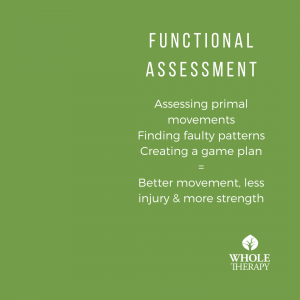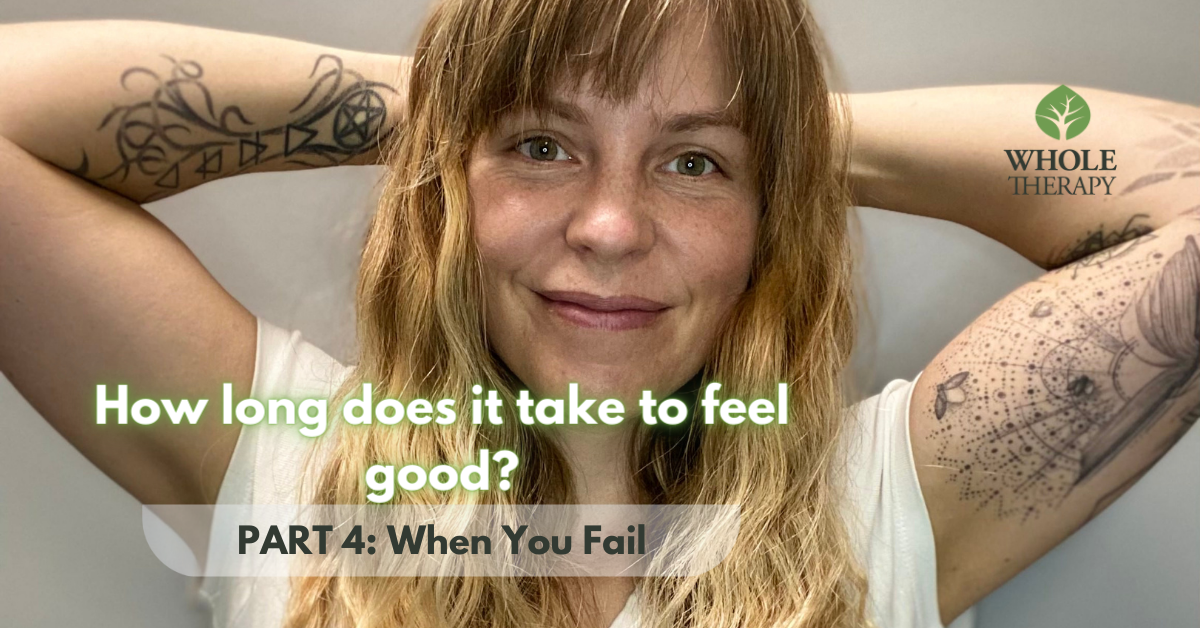If you haven't read Part three of this blog series, click here to check it…
The Functional Movement Assessment
The Functional Movement Assessment
Picture this: you’re heading to the gym for a workout. Are you excited? Nervous? Finding excuses to dive back under the covers? Feelings about workouts and gym spaces vary vastly.
Common amongst us all, however, is a desire for our bodies to look good and move well. And we know that those two things are not mutually exclusive.
And guess what else? We are all getting older. The longer we live, the more we repeat movement patterns that aren’t necessarily serving us.

Are my movements that bad?
If you’re working out, whether in a gym, a studio, or your kitchen, you’re generally moving along the same planes, doing different variations of the same exercises:
- Squat
- Lunge
- Push
- Pull
- Bend
- Twist

These exercise types make up most of our workouts. BUT doing them correctly (and being able to scale them up by adding weight, extra reps or sets, or variation) requires our muscles to work together properly, fire at the right times, and recover well.
Which isn’t always the case.
Enter: The Functional Movement Assessment.
Even at the best of times, repetition of patterns in exercise (and life) leads to the eventuality of said patterns to veer off course. Like the alignment of your car, you need re-calibration from time to time. If we don’t regularly assess our movement and correct where necessary, it can lead to injury, and setbacks.

Could I use an Assessment?
Likely. We love when people are pro-active about their wellness and come in every 6-12 months for a functional top-up. But otherwise, you could use one of these if you are:
- Starting a new program (a new sport or activity, or training for something specific)
- A competitive athlete (we recommend starting every season with an Assessment)
- Coming off of an injury and getting back to your regular activity levels
- Feeling generally ‘off’ or wary during activity, almost like you’re on the edge of injury

What happens during an Assessment?
You spend an hour with one of our highly trained Personal Trainers in the Whole Therapy gym space, where you will go over your personal health history. He or she will assess basic movement patterns with you, and educate you during the process on what your body is doing and ‘saying’.
After the assessment, the Trainer will lay out a recommendation of corrective exercise and a plan to address any areas that need improvement.




